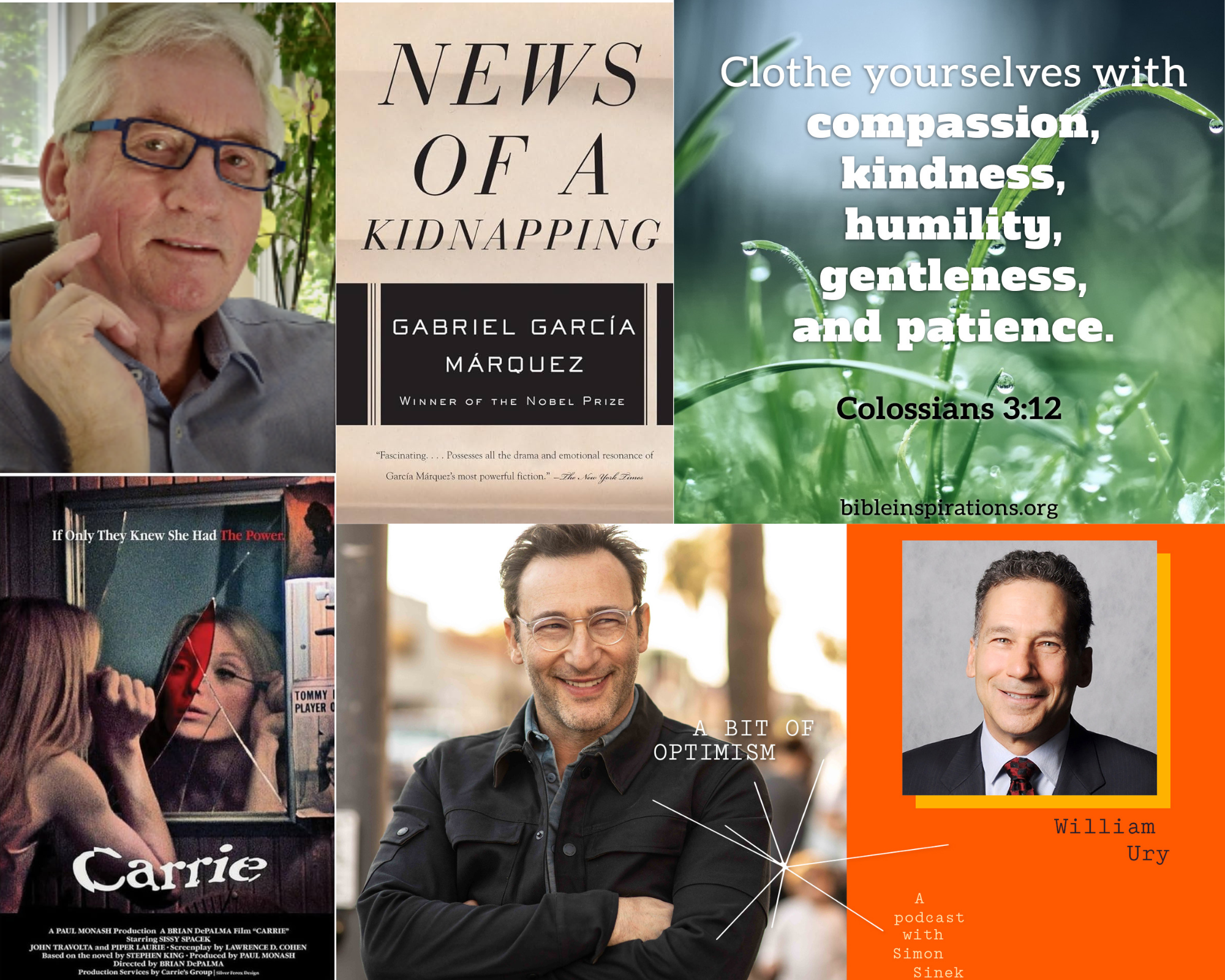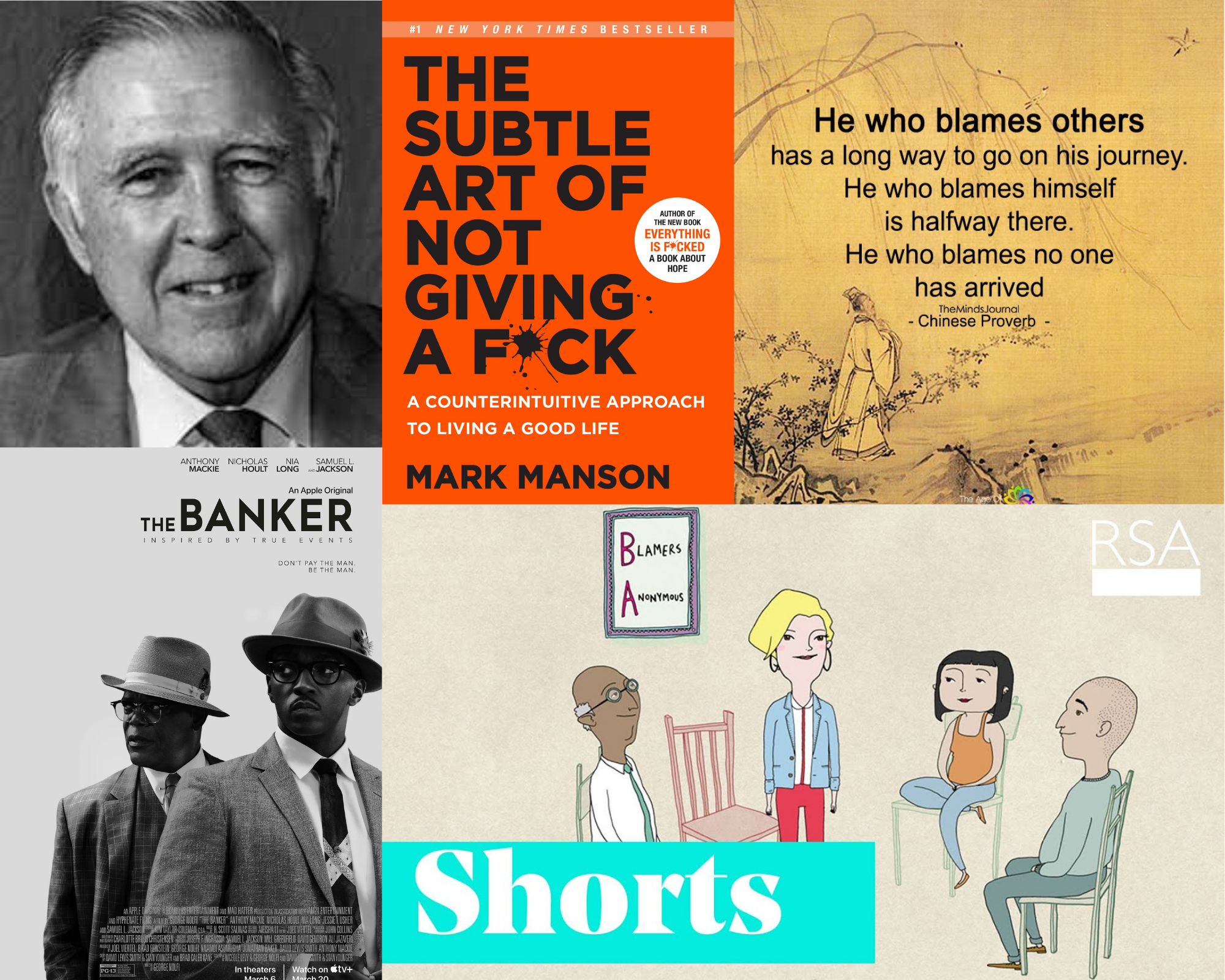Sunday Supplement #184 (November 17th, 2024)
Below is another Sunday Supplement with a quote worth sharing, a book worth reading, a movie worth watching, brainfood worth consuming, and a spiritual passage worth pondering.
Please take something away from these recommendations that enriches your week ahead!
Quote of the Week:
“Human morality is unthinkable without empathy.”
– Frans de Waal
Book of the Week:
News of a Kidnapping – Gabriel García Márquez
News of a Kidnapping recounts the 1990s kidnappings, including ten prominent journalists, by the Medellín Cartel operated by Pablo Escobar.
Gabriel García Márquez covers the events, from the government’s handling of the situation to the cartel’s experiences and those they captured.
I found the read engaging but intense. In a time and place where presidential candidates and cabinet members were frequently assassinated, I didn’t know how the story would end.
I’ve featured Gabriel García Márquez in Sunday Supplement #79. I highly recommend reading the Nobel Prize-winning author’s works.
Movie of the Week:
I’ve featured several Stephen King books in previous Sunday Supplements, but only a couple of the films adapted from his works.
The reason I haven’t featured many Stephen King movies is because I don’t believe most have captured the magic of his stories. Brian De Palma’s Carrie is one of the few that did.
Carrie was Stephen King’s brilliant debut novel. It was also the first of his stories to be adapted to the screen.
The story follows Carrie, a shy, friendless girl who is sheltered by a domineering, religious mother. After years of abuse, Carrie finally finds herself fighting back in an unexpected way.
Brainfood of the Week:
Peace Is A Process – William Ury | A Bit of Optimism Podcast
William Ury spent decades as a peace negotiator and has written several books, including the best-seller Getting To Yes.
Simon Sinek, who I have featured in several previous Sunday Supplements, is a bestselling author and speaker on leadership. His podcast A Bit of Optimism features him speaking with various people, with the aim of leaving those who listen feeling a bit more optimistic.
In this episode, Sinek asks Ury about his experiences as a peace negotiator, and they discuss how these tactics cross over in many different areas of our lives.
Closing Spiritual Passage:
“Therefore, as God’s chosen people, holy and dearly loved, clothe yourselves with compassion, kindness, humility, gentleness, and patience.”
– Colossians 3:12
When I read religious passages, I look for the meaning behind the passages and what valuable lessons they can impart to me.
This Bible passage discusses the importance of showing compassion, kindness, humility, gentleness, and patience. It specifically refers to clothing yourself in these traits— in my opinion, so that others can see them.
These traits are more valuable when shared. Others can see these behaviors and be positively affected by them, as well as be provided with an example of how one can choose to be.
Make space for empathy in your life, and have a blessed week ahead!


